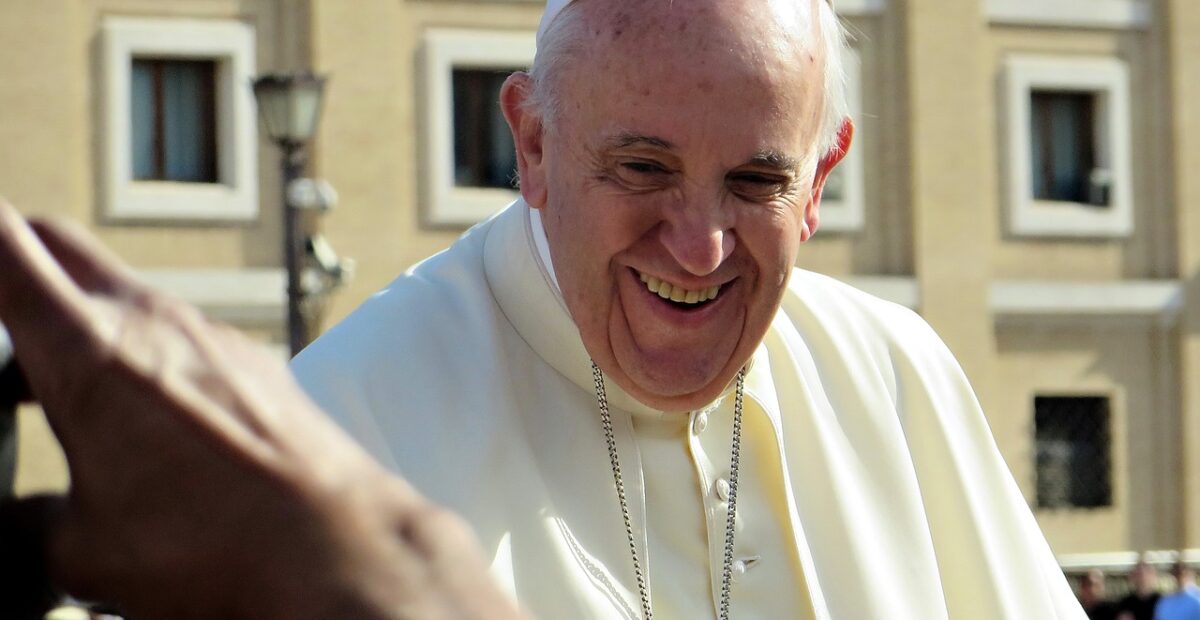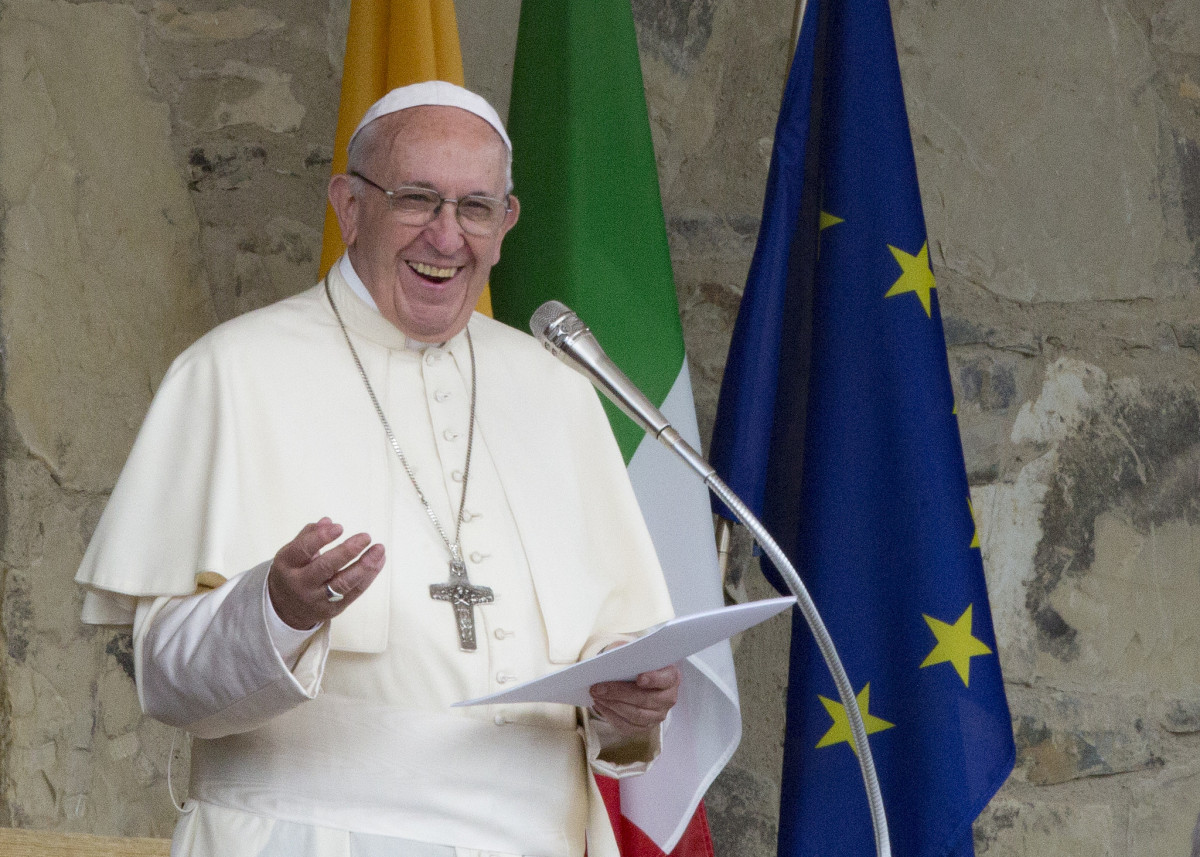
Watch
Bergoglio, Lisbon and the love for cinema

Amongst the various cinematic initiatives of Lisbon 2023, there was an interesting review presented in the days before the WYD (28/31st of July) on the cinema loved by Pope Francis. A handful of classics dense with value and meaning, to be recovered in order to stay on the road, to reflect and to better face life. The pope himself, in the article, offers his valuable insights into these films.
“No one better than you artist, genius creators of beauty, can sense something of the pathos with which God, at the dawn of creation, looked at the work of his hands”. Thus, John Paul II, in 1999, began his long letter to the artists. Art as an instrument to witness, to strengthen God’s work, then. As a tool with which to walk towards a full realization of the human being. In this prospective art itself, including the cinema (it’s “young” yet fundamental exponent) was presented at Lisbon, on that WYD initially promoted and sustained by John Paul II himself. The numerous films – fiction and documentary – accompanied the Portuguese days: works on social themes, ecology and religion, with reference to “the concerns of the encyclical “Laudato Si'”. Biographies, testimonies, full life stories. The same life at the centre of a tribute that the WYD of Lisbon paid to the classic fiction cinema, particularly that beloved of Pope Bergoglio. They did it through a review (presented from the 28th to the 31st of July) entitled “The cinema according to Francis”: a handful of important films to think, grow and walk towards the good. One of these is The Journey of Federico Fellini, of the year 1954, with an amazing Giulietta Masina in the role of Gelsomina: a naive and enchanted young woman, as unfortunate to be born in a degraded context as she is capable of seeing the beautiful in everything. A slender girl with a big heart, able, with her journey through life (only apparently useless), to anoint and fertilize the still heart of a petrified man like Zampanò of Anthony Queen. The Journey is a film loved by Pope Francis: he found in it (he says in Monsignor Dario Edoardo Viganò’s book, Lo sguardo: porta del cuore. Il neorealismo tra memoria e attualità (The gaze: door of the heart. The neoralism between memories and current events)) “an implicit reference to Saint Francis”. Just like Fellini’s capacity to “donate an unprecedented light to the gaze of the last ones. In that film – continues Bergoglio – the story of the last ones is exemplary and is an invitation to preserve their precious gazes on reality”. There is a character in The Journey, who clarifies the meaning of Gelsomina’s work, her unwitting mission to redeem Zampanò: he is a street artist called “the madman”. He explains to the protagonist that he does not know “what a stone is for. But it must be of some use! Because if it is useless, then everything is useless. Even the stars, even you. Instead, you too serve for something”. On another occasion, the Pope explained that the beauty of Gelsomina lies in her having “sown”: in having produced the fruit of Zampanò’s liberating cry. Babette, the protagonist of another film loved by Bergoglio, also gives herself for her neighbour. She does so for a frozen, contracted community in Gabriel Axel’s 1987 Danish film, Babette’s Feast. The woman is a talented cook, an artist of the kitchen. She is French, has a painful history behind her and lives at the service of two sisters in a small village in Denmark. When she wins a large sum of money in a lottery, she decides to invest it in an exquisite meal that will bring joy among the inhabitants of that dull community. It is a beautiful film, Babette’s Feast, even quoted by Pope Francis in the Encyclical Amoris Laetitia: “The most intense joys in life arise when one can procure the happiness of others, in a foretaste of Heaven,” the Holy Father wrote speaking of the film. He added: “Sweet and consoling is the joy that comes from procuring delight for others, of seeing them enjoy it. Such joy, the effect of fraternal love, is not that of the vanity of one who looks at himself, but that of one who loves and takes pleasure in the good of the beloved, who pours into the other and becomes fruitful in him”. The Pope also wrote important words on Rhapsody in August, another film in the festival – directed in 1991 by the Japanese master Akira Kurosawa. The film narrates the story of an elderly Japanese woman who survived the Nagasaki nuclear disaster. She recounts her story to the young grandchildren with whom she was left alone at home during a summer. Those youngsters dress differently from her own, as different is the culture in which they are immersed. But through the true encounter, the growing dialogue between generations, the painful and necessary memory is kept alive. The pontiff spoke about this film while visiting a Roman parish in 2017: he called it useful “to explain the importance of dialogue between grandparents and children, to understand how this dialogue should be done”. In another meeting, this time with university students in Tokyo, responding to a question about fears and hopes for the youth, Bergoglio expressed his great concern “that the youth lose their cultural, historical and human roots”. Hence the connection with Rhapsody in August: in the film “the children met the roots, which are hidden, so it takes a memory to find them. The youngsters should get used to talking to their elders. You have to look for the roots of the homeland, of the family, of your human being”. The Lisbon review also included I promessi sposi (The Betrothed) by Mario Camerini, 1941, from the famous novel by Alessandro Manzoni: a fundamental text and much loved by the pontiff. Dense with important themes such as love, power, justice, divine providence. A novel with the simple at the centre, those humble people that Francis cares so much about. A book (of which Camerini’s film becomes a vehicle) precious to everyone, first and foremost to the youth. As are all the images and words of the other films in this precious review. Catching them up on these August evenings would not be a bad idea at all.






